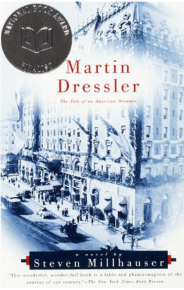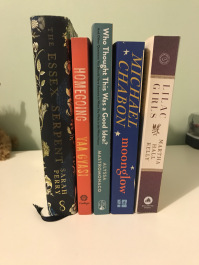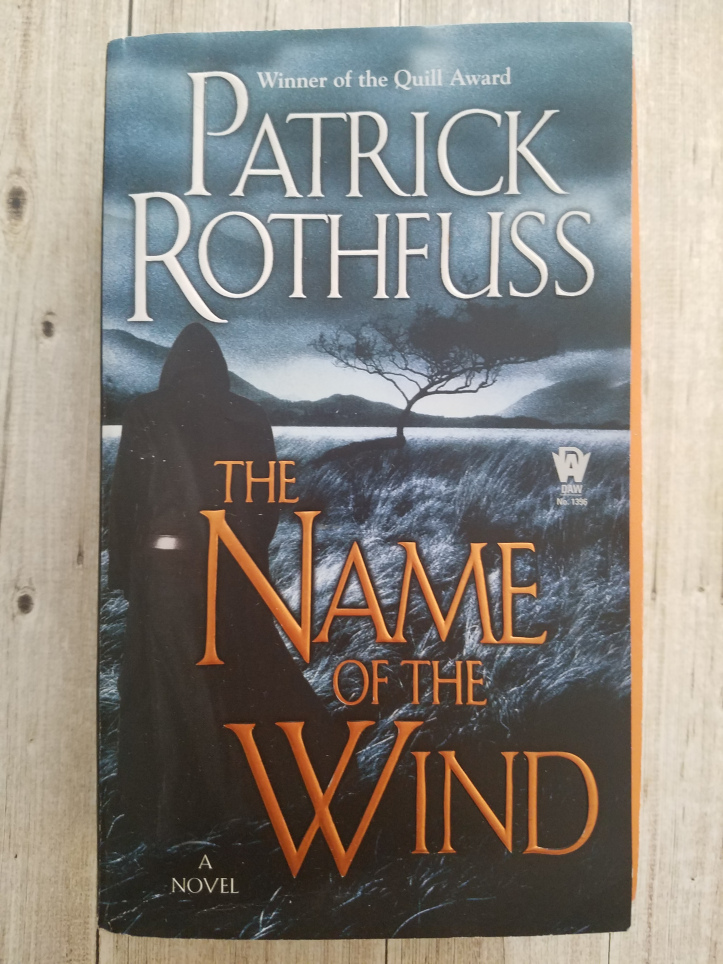 uh…huh.
uh…huh.
A Dreiser-esque bildungsroman makes sense until about 80% of the way through, at which point it turns abruptly into a completely different novel written by R.L. Stine. At least, it’s what I imagine a Goosebumps to be like. I was always too chicken to read them.
That’s not a great summary.
Martin Dressler is an entrepreneur. We watch him grow from childhood, get his first job, and climb to heights no one could have predicted. He builds an empire of hotels, which ends spectacularly–in more ways than one.
Writing StyleI will say, the writer is consistent throughout. As I said in a previous post, he writes very much in the style of Theodore Dreiser. You’re really immersed in the world and mind of the characters, but it’s heavy on the facts and light on emotive elements. I love the style. It’s vivid in the way a good expose in Rolling Stone is vivid. And towards the end, even though the story goes full-on bat poop, the writing is the same. It’s just that, now, someone’s writing a good expose on a a circus-themed nightmare he had.
CharactersMartin is the main character, and he’s not likeable. You root for him anyway, because he’s a visionary. He also does some admirable things. His ambition causes him to aim high, and it’s hard not to cheer as he refuses to sell his ideas short. He ignores prejudices of his age and has a competent woman as his closest business confidant. But he’s unfaithful and a bully and entitled and, at the end, melodramatic.
Martin’s wife is also insufferable. She reminds me of Linton from Wuthering Heights–frail, waifish, self absorbed. I will say she isn’t whiny, though. Just a total waste of oxygen. Anyone around her has no choice but to make their lives about her or suffer the consequences. Now, you know I don’t mind unlikable characters, as long as they’re interesting. This one is not. And things end ridiculously with this character. Absolutely absurdly.
Anyway, characters are not the selling point of this book. The story is. Well, 80% of the story is. I don’t even know what the last 20% of this book was.
HighlightsI loved reading about the beginning of Martin’s life. As a bellboy, he notices details like the texture of luggage and the shine of brass, and the way he describes the bustle and brightness of the lobby is entrancing.
It was also great to watch Martin’s empire grow. You get to see the nuts and bolts of how he used new marketing techniques and how he found people with complementary skill sets.
There are good things about this book. I enjoyed reading it. UNTIL.
FWIW (My Opinion)What in god’s name was this author doing. <– That was rhetorical.
The shift from a grounded, great-documentary-style to this starkly contrasting horror fantasy at the end was so utterly bizarre that I felt like my head was spinning, Exorcism-style (which would have been in place with this ending). Let me explain.
You’re just reading a story where Martin is building more and more experimental hotels, imagining whole villages underground with stores and themed activities and–kind of like one of the more over-the-top cruise ships, frankly. And then, all of a sudden, everything is totally out of control. But not in a way that feels like plot continuation. More like a way that feels like the author had a mental breakdown.
I won’t throw a spoiler out there, but Martin’s wife does something in contrast to every non-fantastic thing this book stood for until this point. After this, we’ll further see that all bets are off for realism. The new hotel Martin builds is like a freak show combined with a brothel combined with a nonstop pagan ritual. It’s like you’re in the casinos in Fear and Loathing in Las Vegas after taking everything potent in the suitcase and having it go very badly for you–in other words, totally incongruous with the rest of the novel. The switch happens without warning, for the most part. I was turning pages in total disbelief that this was the same book.
I cannot understand for the life of me what the idea was here. I mean, I read a bit about Millhauser, and it sounds like he was indeed trying to transition into the fantastic, but gradually and elegantly. That transition was about as gradual and elegant as slamming into a brick wall at 70 miles an hour. I’d say the ending is unsatisfying, but it didn’t even feel like I was the conclusion of the same story.
Guys, hard pass. Too bad. It was good reading until things went nuts.
Advertisements Share this:- More





